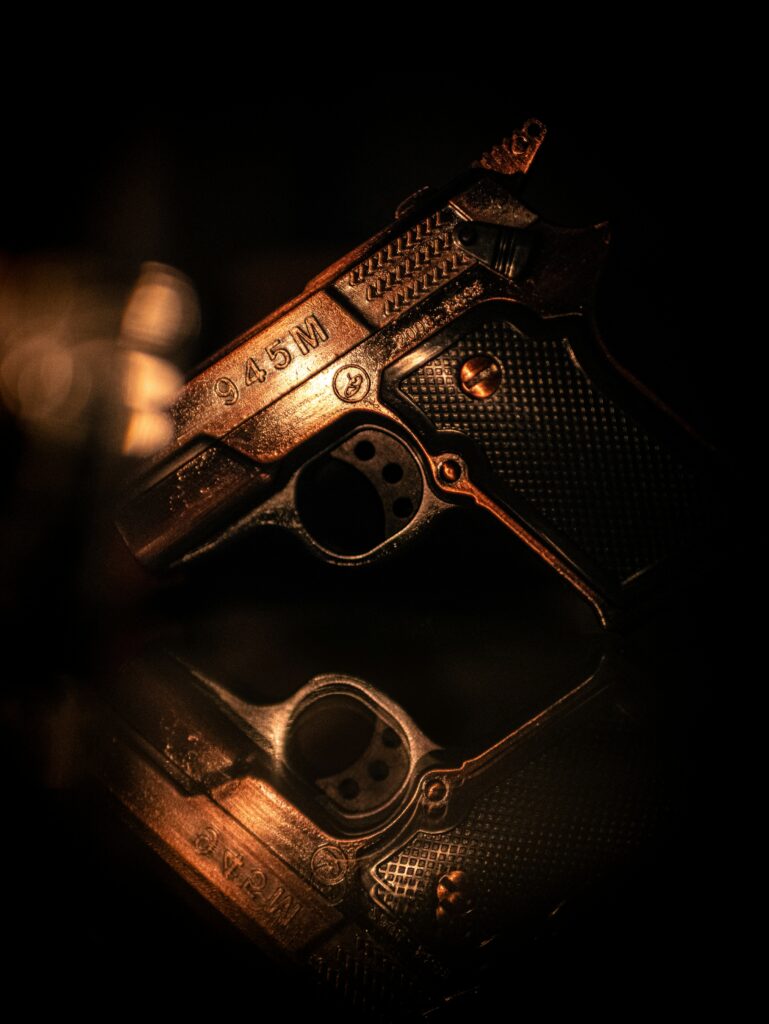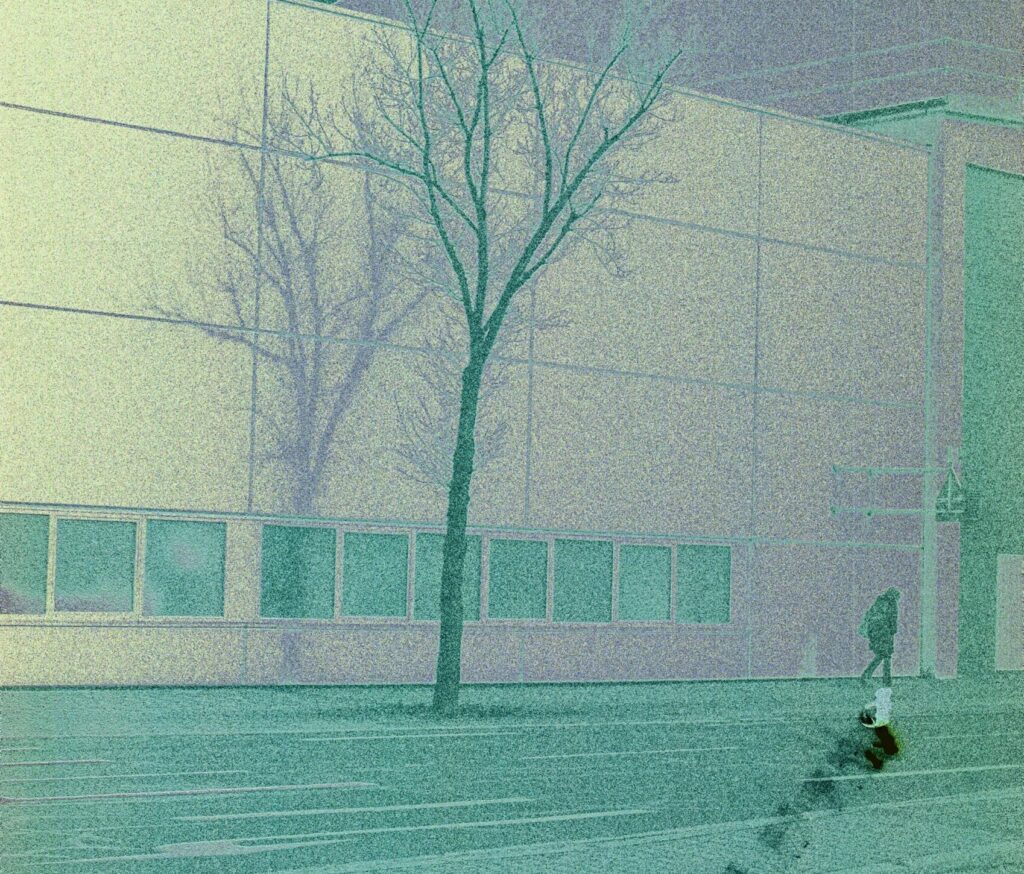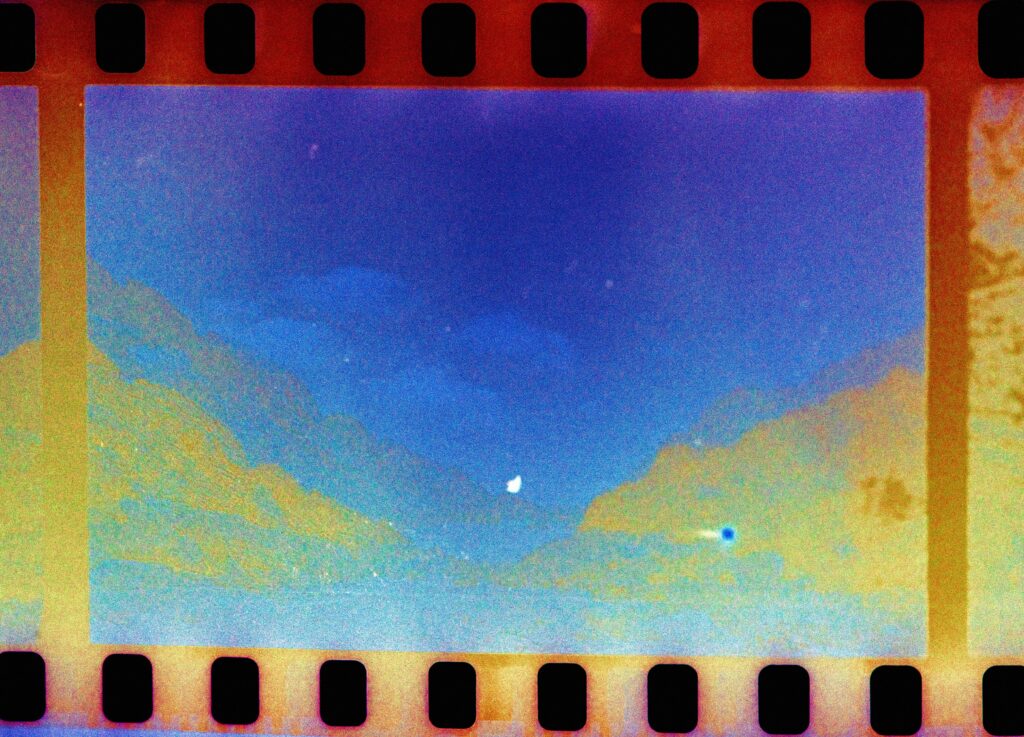
The Inbetweeners meets Lock Stock and Two Smoking Barrels, D.R. Fenner and Jacqueline Haigh’s debut comedy crime is based on true events and the Dutch crime duo Johannes Mieremet and Sam Klepper. An accountant at a successful London bank and his two best mates throw themselves into an Amsterdam adventure – but their antics disrupt the lives of the city’s two most notorious gangsters; Spic and Span are named after the ruthlessly efficient means taken to dispose of their victims. ‘Some tourists think Amsterdam is a city of sin, but in truth, it is a city of freedom. And in freedom, most people find sin.’ Sweat beaded on Ando’s forehead then meandered down his cheeks in rivulets. The cold muzzle of the gun pushed against his left temple so hard it hurt. Holding the weapon was a neatly suited, clean-shaven Dutchman with greased-back, dark brown hair. His shark-like eyes glistened. Meanwhile, his accomplice, a heavy-set guy with a pugnacious face, stood across the room grinning. Spic and Span never sent henchmen to do their dirty work. They viewed this as their vocation – it wasn’t just about making money. It was a matter of reputation. ‘Well now,’ the gunman said, waving his pistol calmly. ‘That’s interesting because my good friend Mr Beretta here says you’ll do exactly as you’re told.’ Span stretched up to his full height of six foot three. Ando looked across the room, to where his friend, Dickie stared in horror at the second gangster, who was even taller, and roughly the same distance across the shoulders. An archetypal hatchet man, he looked the type you could run over with a tank, and he’d get up and smile at you. Dickie was squirming, hunched in his chair in a way which accentuated his double chin. Ando knew that expression only too well. Dickie was doing the face he always did when trying not to soil his pants, which he would no doubt blame on his gastric issues if they got out of here alive. Dickie’s wide-eyed countenance caught the attention of Spic, whose forehead creased into a frown. ‘You like me, pretty boy?’ He sneered. ‘Should I bend you over and make you my bitch?’ ‘Err… no,’ quivered Dickie. ‘Then stop eyeing me up.’ Dickie lowered his eyes and fixed them on the gangster’s shiny, wing-tip shoes. Ando glanced over at his other friend, Hoppa, hovering further to his right. Strangely, despite the fraught situation, Hoppa looked relaxed, almost a smirking. How does he do that? Ando thought. No wonder he’s so good at poker. Over the years, Ando had heard about the colourful characters that Hoppa knew, so it was unlikely to be the first time he’d seen someone threatened with a gun. But even so… Unfortunately, the gangster holding the gun to Ando’s head was not so impressed by Hoppa’s laid-back manner. ‘Is something funny, clever boy?’ ‘No, no, nothing.’ Hoppa kept a straight face. ‘You think I’m comical?’ Span yelled. ‘You think I’m a fucking clown?’ ‘No,’ Hoppa persisted. God, he’s good, Ando thought. But, of course, it was a red rag to the Dutch bull. ‘You think you English can fuck with me?’ Span turned and away from Ando, spraying saliva in Hoppa’s direction as he spoke. ‘No.’ ‘Smile again, and I shoot your dick off. Got it?’ Span aimed his handgun at Hoppa’s groin, then twisted his neck, making it crack. His eyes became even more sadistic. Spic was terrifying, but Span took it to another level. He liked to get in people’s heads, to hear them scream. The things Spic had watched his comrade do would make most grown men weep. ‘Please, guys,’ Ando pleaded. ‘We’re not trying to fuck with you. This was all a stupid mistake.’ Span turned back towards Ando, removed a silencer from his pocket and screwed it onto the end of his gun. Ando’s imagination kicked into overdrive. He pictured the bullet exploding through his skull and exiting behind his right ear, scattering shards of bone into the cerebral cortex, back toward the basal ganglia, and down into the thalamus as his brains blew out all over the wall. Over-analysis even at a time like this. He thought. As the tip of the pistol pressed back on his sweaty forehead, a strange sensation flooded over him. Time slowed. The commotion around him faded away. Out of the corner of his eye, he caught a last glimpse of his two best mates as they looked on in horror. ‘You know,’ Span said, ‘some religions think dying is like being born. I like that. An ending, a new beginning, who knows?’ ‘I’m not religious!’ Ando blurted. His voice was shrill. He didn’t know where the words had come from. It was as if they just erupted from his mouth. ‘That’s OK,’ Span said, smiling softly. ‘Just pick a God and pray.’ Behind his closed eyes, Ando heard the sound of the weapon being cocked and waited for his moment. Would it hurt? Would he feel it? He never thought that his time on Earth would end like this, in a soulless hotel room in Amsterdam… This is an edited extract from Double Dutch set for publication with the RiverRun imprint of Foreshore in summer 2025. D.R. FENNER is a novelist who lives with his wife and three young children on the northern beaches in Sydney. JACQUELINE HAIGH is a scriptwriter, story consultant and performer. She has over twenty years of experience as a writer and stand-up comic and has written books and scripts for film, TV, stage and radio. Feature graphic by Eliezer Muller on Unsplash

A sharp satire of the teaching industry, Josie Lee Star’s literary gem, The Dale chronicles the petty grievances, romantic entanglements, triumphs, and sorrows of a group of teachers at a fictional secondary school as they brace for an impending Ofsted inspection and the arrival of the inhuman Mrs. Khokhar, tasked with ensuring The Dale maintains its ‘outstanding’ status. Simon Peterson was a little man, impeccably dressed; he had aged well and was aware of the fact. He had spawned four males, all taller than himself, and his wife had died without fuss, before divorce was necessary. With his relatively large income and powerful job, he had never struggled for a bedfellow. His home was now empty, which meant even more freedom. He was grateful to himself; he had made it all happen; he was the only one to thank. His current “extra-curricular interest“, Suzy, was at the front of the assembled staff, and had been prepped to speak at an appointed time. She wasn’t a great actress, and others had started to suspect her allegiances. It didn’t really matter, as it was all sewn up anyway. But she did trouble him. Suzy was mixed race; they were always mixed race. His type was as predictable as his morning routine. She was petite, perfectly manicured, and with exceptional legs. Suzy didn’t dress like a teacher, and for that he was glad. Her clothing was stylish, and he enjoyed that about her, though it didn’t win her many female supporters. What caused him concern were her maternal comments, which suggested an expectation that he didn’t share. Despite the shortfall in Suzy’s qualifications, Simon had offered her the role of Head of Department. Knowing that she was on the other side of thirty had pleased him. She was still firm, but probably not wanting children, he’d concluded, especially if she’d waited this long and was still unmarried. If he had known the consequences of her as Head of Department, he may have thought more deeply. However, at the time, her semi- see-through mini dress, tightly cut bob and stiletto heels had featured in a fantasy that he had every intention of making reality. The auditorium was a fairly new addition to The Dale; it was one of the rooms that was maintained and locked daily. Even so, Simon could detect the shadow of neglect. Graffiti was visible in the corner of the light booth. He could see that an attempt had been made to clean it, but it wasn’t enough, and the word ‘Fucked’ could be detected under a layer of black paint. Many of the seats were missing their plastic coverings and a film of grey dust lay on the pale blue carpets. Even so, Simon knew, from visiting other schools, that this room eclipsed the average secondary school hall. As with many of his innovations, other Heads had expressed outright jealousy on entering. When it was in the design phase, Simon had contributed to the plans, including the stage, with its wide-lipped base, which tended to give the vertically challenged speaker more depth and height. The technical team had been prepped about the lighting, which he also utilised to enhance his stature. Nodding to Gary from ICT, the lights came on. His face was now illuminated, and his body was ever so subtly shaded. He had been told that his eyes sparkled with this tint. Scanning his audience, he felt deeply satisfied. There was just the right mixture of fear and excitement, as he paced the stage. He took the time to single out a few prized acolytes, and gave them a wink or a wave. Then, Mr Kear entered, with a clipboard. Simon’s acting second-in-command displayed those special characteristics that Simon lacked. On first appearance, Kear was amiable, with his silver hair, youthful skin, and piercing blue eyes. He was a happily married man of 25 years, a fact that was reassuring, and vitally necessary when it came to the inevitable management of staff expectations. For Mr Kear to succeed, it meant that his demeanour needed to be less aggressive than that of Simon Peterson, OBE, and Head of The Dale. Clearing his voice, and smiling through his thick white teeth, the Head took the pulpit, and waited for silence. It came quickly, and the expectation in the room was like waiting for confession, “Yes, hello, hello, for those of you that don’t know me…” He paused for the expected laughter. “I am Mr Peterson, Head of The Dale, a job I am so proud of, in a school I can only say, you are lucky to, I will say that again, and really hear me, that you are lucky to work at. Yes, you are right, that deserves a clap.” Simon paused, and noted that his senior staff, led by Kear, standing at the front of the stage, were clapping. The rest of the congregation joined in. “Great. Yes, so great. This is one of the most successful schools in London, not only are we oversubscribed in terms of students, but teachers too, yes! We are literally turning teachers away. Have you heard about the retention problems in the UK? Of course, you have. Well, not here, my friends, not here. On a Monday morning, my secretary will have no less than 50 CVs of some of the best teachers on her desk, and they all want to work here. So, I say it again, you’re the lucky ones.” He let this information sink in, and saw how Suzy clapped her hands loudly, and looked on at him with adoration. “So, before we get into the nuts and bolts of this remarkable day, I want to stress that The Dale is the foremost provider of Inset provision in the UK. I know, yes, it deserves another hand, but we must crack on. Some housekeeping now. We’ll have a lunch break at 1pm, no other breaks today, I’m sure you can appreciate just how much we have to get

In Goodbye Me, George Tabakov delivers an immersive and emotionally resonant debut novel. This profoundly moving narrative explores the transformative power of self-love—not as a concession to our flaws, but as a celebration of our true selves. Through a deeply personal journey, Tabakov invites readers to embark on a quest for self-esteem and acceptance, illuminating the beauty of embracing who we are. What’s the worst seat on an aeroplane? I reckon it’s the middle seat, right at the back, next to the toilets. If you’re on an A380 doing a longhaul flight from Australia, the award goes to seat 57E in economy class. This exclusive seat offers: the heaviest turbulence – you get close to hitting the overhead luggage storage when it’s a good bounce; a lovely, lingering waft of shit and microwaved fish, and; unless you’ve popped a pile of sleeping pills, you’re stiff and miserable and very conscious of it for an entire 24 hours. I poked my head up from seat 57E and strained my neck to look out of the tiny window about four metres away. We’d gone over the English Channel so that meant we had to be close to Heathrow. As the A380 followed the Thames, I could make out endless terraced brick houses and motorways intersected by overpasses and more motorways. It was happening. I was about to land in London with no job, no friends, and no family. Absolute freedom. Or was it free-doom? I chucked on Smalltown Boy, Bronski Beat and played with my printed boarding pass, flicking it up and down in time with the song’s beat. I liked reading the boarding pass: Mr Peter Hristov Singapore Changi Airport – London Heathrow Seat 57E, Boarding Group E, Economy class Reading it made me feel like I had a plan in life, like I was a proper grown up. I placed the boarding pass into the seat pocket in front of me – I was probably going to forget that now – and scrolled through photos on my phone. I saw one of my old beat-up Mazda. Good ol’ Parker. I’d called the car Parker so that together we could be known as Peter Parker: Spider-Man. This was something I kept to myself, for obvious reasons. After I graduated from university in Brisbane, Australia a few weeks ago, I sold Parker and bought the cheapest one-way ticket across the world to somewhere relevant. The plan was that there was no plan. I wanted to experience extremes of emotion; to see the world for how it truly was and understand the human psyche. I sought rebirth and reintegration of my soul. I was dirty and I needed cleansing. And what else can you do when you’re messed up other than move somewhere else in an ignorant and desperate hope of forgetting every thought and experience that’s ever happened to you? If you’ve tried everything to fill the void inside of you, maybe the problem isn’t you, it’s the place you’re in. If you can’t fight, fly. I stood up and shuffled past the passengers sitting next to me. I chose to have my arse, instead of my crotch, in line with their faces as I squeezed by. It was more polite in case the plane jolted me and my crotch went into their faces. I got past my fellow weary souls aboard this flying cattle express and went down the aisle to use the toilet. A flight attendant’s voice came over the speaker which made me jump. ‘Good morning passengers. We’re now approaching London Heathrow. The captain has switched on the seatbelt sign. Can all passengers please return to their seats? Thank you.’ I took my chances and took the final steps to the toilet only for the flight attendant to appear from around a corner. ‘Please, sir, you need to return to your seat now,’ she said with her glowing, beautiful face and moisturised skin. ‘Oh, I’ll be really quick,’ I said with my dark, puffy eyes and sandpaper-like skin. She was a marshmallow fresh out of the packet and I was a speck of dried ash at the bottom of the campfire. ‘Sorry, sir, but the captain has switched the seatbelt sign on.’ ‘Oh, of course. Sorry.’ I gave the green vacancy sign on the toilet a final, longing look. ‘I’ll go back now then.’ I returned to my seat and held my piss for another 40 minutes, stressing my bladder in ways that would no doubt have long term consequences to my health. I got into the airport terminal and logged in to the WiFi. No messages. Great. I went through UK Border Control, waiting in each queue like the obedient farm animal I apparently was, and popped out of the airport. I lugged my suitcase onto the Piccadilly line and collapsed on a dusty blue seat. My goal was Oasis Hostel in Earl’s Court, which would take a while to get to from Heathrow so I could relax. The London Underground was – at best – dated, yet charismatic and – at worst – mice-infested and eardrum shattering. I looked at the deep-blue metal handrails of the Piccadilly line. They were clasped by hands with a mix of skin colours: the world was here. Well, the English-speaking Western world was. What’s it like to see London for the first time? Grey. So very grey. I looked out of the Tube window at the sky; its blue covered by a fluffy grey blanket. The buildings outside were a mix of concrete, 1950s council house tower blocks. The only things that broke up the grey were fried chicken shops with neon signs and bright laboratory-style lighting inside, and food delivery drivers on mopeds loitering in a pack on a side street or darting through traffic with panache. ‘Sorry to bother you, everyone.’ A skinny man with cuts all over his arms stood in the middle of the carriage, ‘But I’m homeless and lookin’ to get some money to find




